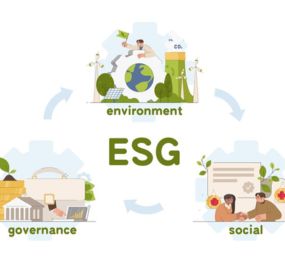Environmental, Social, and Governance (ESG) factors have become integral to how stakeholders perceive and evaluate companies. These criteria are no longer just a part of corporate social responsibility (CSR) initiatives but are now central to corporate reputation management. As businesses face increasing scrutiny from consumers, investors, and regulators, integrating ESG principles into corporate strategies is crucial for maintaining a positive brand reputation and achieving long-term success.
Incorporating ESG practices demonstrates a company's commitment to sustainability, ethical behavior, and social responsibility. Businesses prioritizing environmental stewardship, social impact, and good governance are considered more trustworthy and reliable. This trust is essential in building a strong corporate reputation, which can lead to increased customer loyalty, better investor relations, and enhanced competitive advantage.
Environmental factors focus on how a company manages its impact on the planet, including energy use, waste management, carbon emissions, and resource conservation. Environmental-conscious consumers and investors often view businesses that adopt green practices and invest in sustainable technologies more favorably. This positive perception can translate into stronger brand loyalty and a competitive edge in the marketplace.
Social factors include how a company manages relationships with employees, customers, suppliers, and communities. This includes diversity and inclusion, employee welfare, human rights, and community engagement. Companies that actively support social causes and promote fair practices are more likely to foster goodwill among stakeholders, enhancing their reputation and attracting top talent.
Governance factors relate to the structures and processes by which a company is managed and controlled. Strong governance practices, including transparency, ethical leadership, and accountability, are key to building investor confidence and preventing corporate scandals. Businesses with robust governance frameworks are better equipped to navigate regulatory challenges and maintain their reputation during crises.
The integration of ESG factors into corporate reputation management requires a proactive approach. Companies must not only adopt sustainable practices but also communicate their efforts effectively to stakeholders. Transparency in reporting, consistent messaging, and engagement with stakeholders are critical components of a successful ESG strategy.
As ESG continues to gain prominence, businesses that embrace these principles will be better positioned to build and maintain a strong corporate reputation. By aligning their operations with the values of sustainability, ethics, and social responsibility, companies can enhance trust, drive long-term success, and contribute positively to the world.
For more information and registration details, visit the official website: https://www.leadventgrp.com/events/2nd-annual-world-esg-and-climate-summit/details
For more information and group participation, contact us: [email protected]
















